POST-PASTORAL
A Collection of Work in Conversation with Valeda Beach Stull
On my final morning walk of a week spent on the farm, I hold fast to the dew-soaked toes of my boots and the stray grass catching a ride in the cuffs of my pants. Once home, I avoid laundering these pants and take heart in the widening water marks across my boots. A return to my urban life is a return to organized days where I succumb to the grid that is of our streets and of our calendars and even of the way we stack our shelves and order our things. These romantic souvenirs- dried grass that will scatter on the floor when I unroll my cuffs, un-shined boots that do not betray where they've walked- keep me wistful about my time in the field. But longing for the wildness of nature from the civility of my sturdy wooden chair is to misunderstand my place in nature altogether. To pine for the pastoral is a way of keeping nature ever separate, a place that can only be either sacred or expendable.
Dialogue I: The Field
During the last year, my work with farmers has offered a much more complex response to the pastoral. Nature's dissonance has hushed much of the romance, humility has tempered my nostalgia. Still, I am mindful of the critical transition from my work in the field to my work at the loom- the need for a complete story, a spirited story, to continue along the warp lest beauty be the only voice in the final cloth.
In February, I began a conversation with Valeda Beach Stull, artist and photographer, as part of a broader inquiry into the pastoral. Our correspondence started with a set of woven objects and a handful of literary and musical references. Valeda responded to each woven object and captured her work on film. “Film provided an intentionality and unpredictability that mirrored our dialogue regarding the pastoral, one that both slowed down and deepened the creative process.”
This collection of work embodies our dialogue of woven objects, soil, seeds and light as we examined both the beautiful and the brutal, dissonance and synchrony.
Woven Objects: Objects of Use
A series of 9 hand-woven drawings- diptychs and triptychs-with stories of dissonance and incidence across the woven plane. Panels are connected by the warp threads they share, intended to be cut apart when the time is right. Diptychs measure 16" x 52", triptychs measure 16" x 77".
These objects are intended to live two lives.
With the panels still connected, as a table runner, a dressing for a bureau, or a drawing to drape across the bed or over the back of a chair. Once separated, the drawing becomes fragmented and the cloth takes on a more intimate relationship with the body and with space. Use it as a hand towel to elevate the drying of clean dishes or clean hands. Let it be the surface for your favorite rotation of objects, a resting place for a salt cellar and candlestick on your dining table.
Cutting the warp threads is the final- and sacred- act in the weaving process, one of liberty and destruction. This moment is yours to define, be it highly ritualistic or completely spontaneous. Each piece has been hemstitched on all horizontal sides so no additional sewing is required. Cut and use.
In Use: At the Table
Dialogue II: The Garden
Dialogue III: Cut to Use, As Ritual

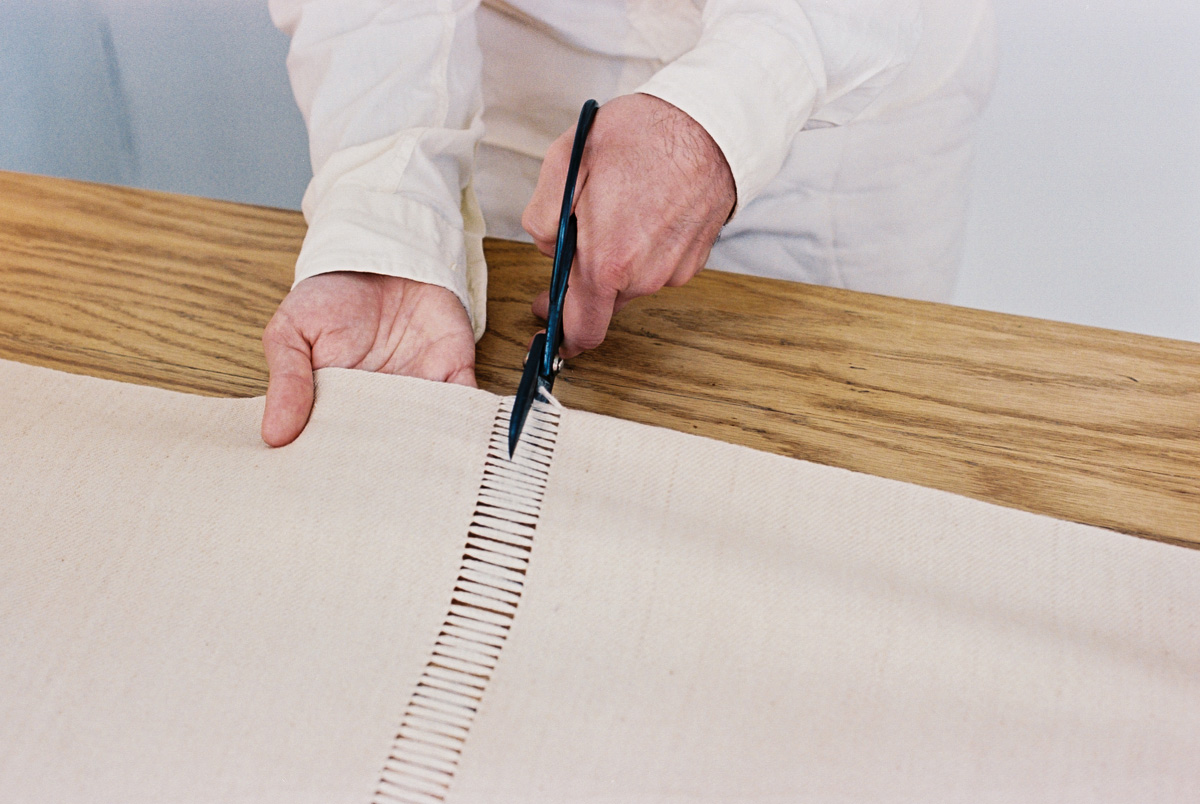
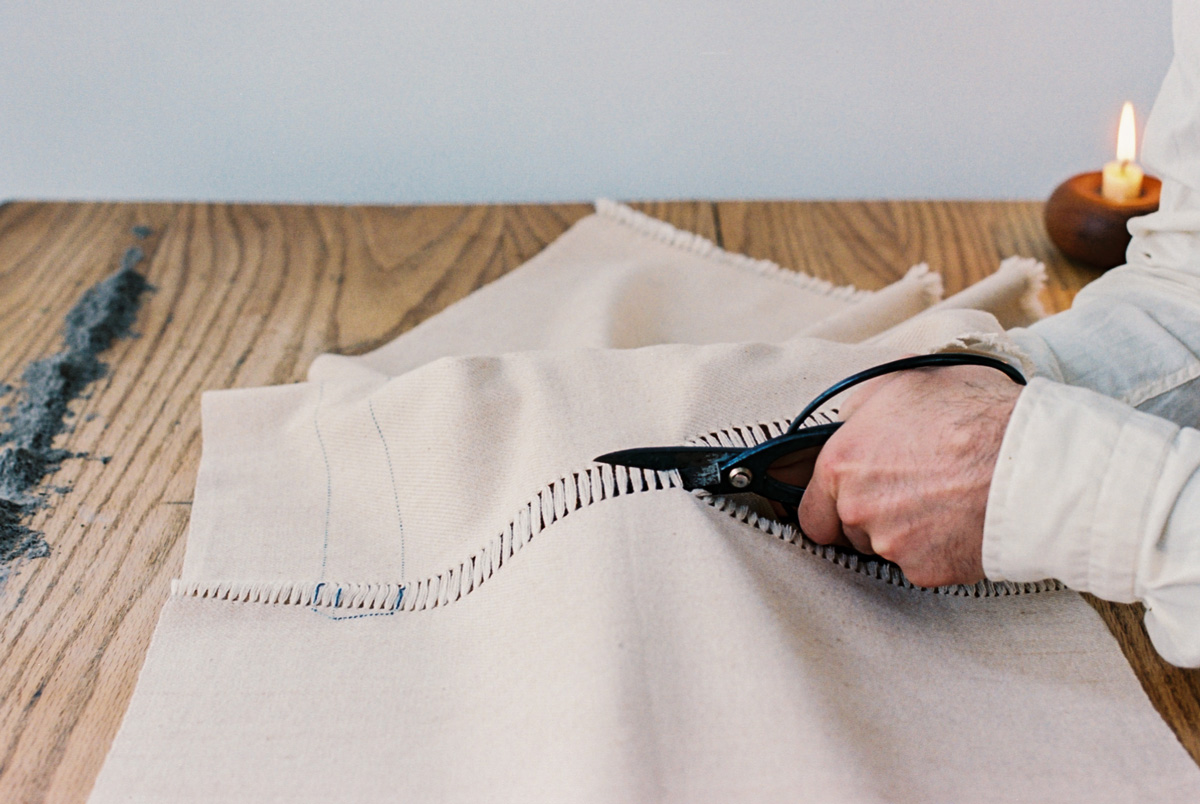
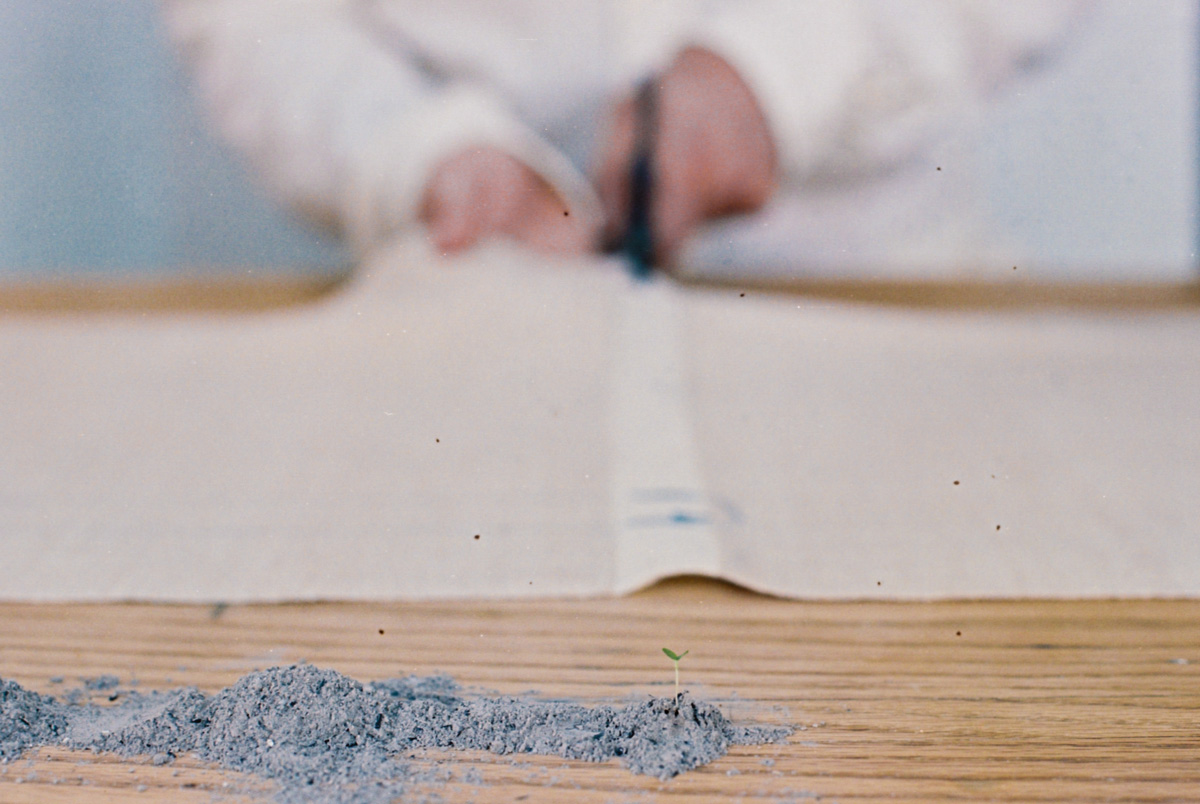
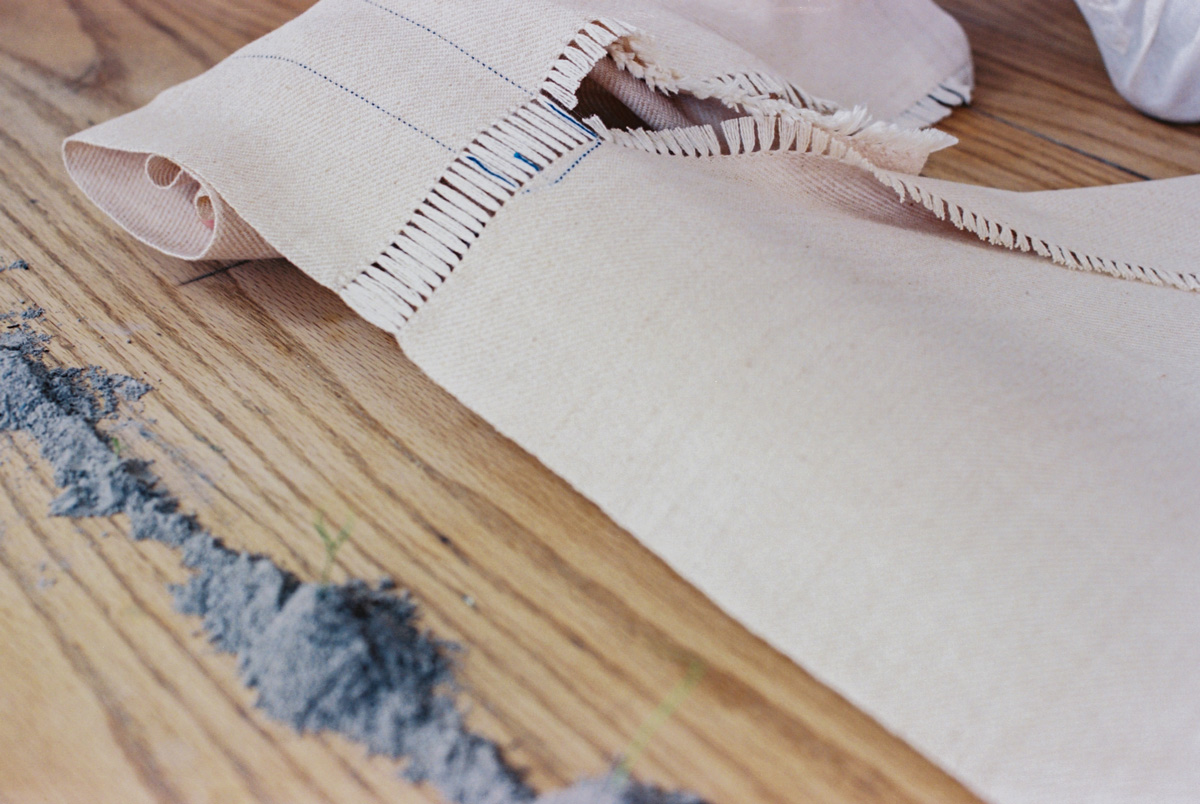
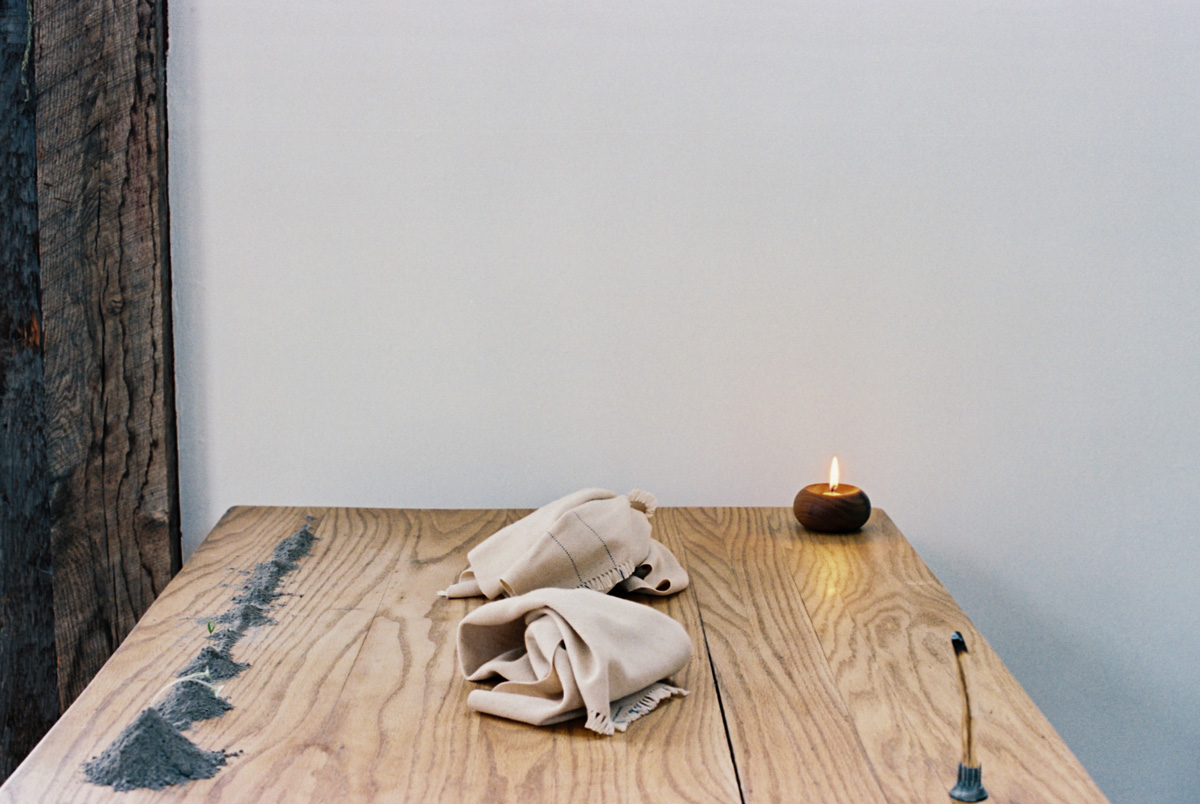
Dialogue IV: The Lark Ascending, after Ralph Vaughan Williams
Epilogue: Post- Pastoral
Of Note:
Literary References: The Machine in the Garden by Leo Marx, Pastoral by Terry Gifford, Walden by Henry David Thoreau, The Road by Cormac McCarthy
Music we listened to: Ralph Vaughan Williams, Claude Debussy, Benjamin Britten, Lightning Bolt
More of Valeda's work can be found here.



















